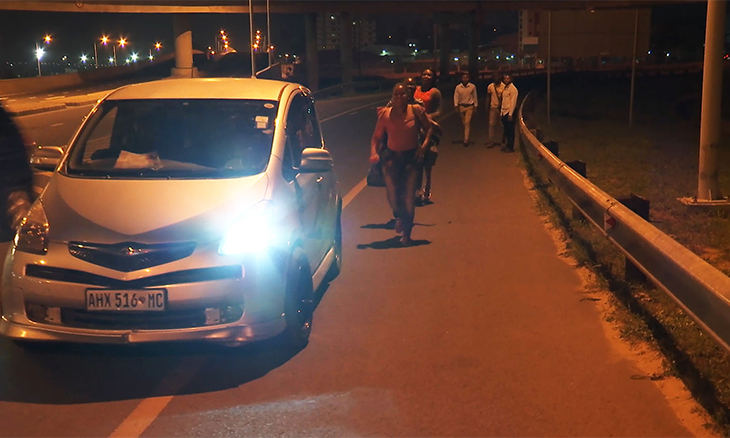Accident leaves two dead and 10 injured in Inhambane
Mozambique: The hitchhiker’s saga starts at 7:00 p.m. for those living in Katembe

Photo: O País
There is a lack of public transport leaving Maputo city for Katembe after 7:00 p.m.. This creates a problem for the district’s residents, who are forced to rely on hitchhiking after that time.
A city divided by the sea and connected by a great infrastructure – the Maputo–Katembe bridge. But nobody would want to be in the shoes of those looking for public transport to make the crossing at night.
During the day, the passenger transport scenario is just about normal. But when the sun goes down, it’s not just the light that disappears; passenger transport vanishes too.
‘O País’ visited the Anjo Voador terminus at around 8:00 p.m. to find a group of people waiting for transport, but with little hope of any showing up.
“We have been waiting since 5:00 p.m.. Every day, there is no transport here, not even at Elisa, Chamissava and Marinha,” Sónia Muchanga tells us.
The group was waiting for the last bus, due to arrive at 9:00 p.m.. But in its place, a ‘My Love’ freight truck showed up.
“The dream becomes a nightmare. Back when we saw the [bridge] pillars rising up, our eyes were filled with joy, but today, they are tears of blood,” says Katembe resident Flávio.
The same scenario is repeated at the Malanga stop. Flávio blames carriers for the lack of transport, because, he claims, they refuse to share the route with new operators.
But not even danger can intimidate those prepared to hitchhike to other side of the bay. Even after crossing the bridge there is no sign of public transport, and people are forced to walk long distances to their homes.
“It’s now 10:00 p.m.. I’m going home, and we don’t have any transport. So I walk, and only get home one hour later,” says Dique Cossa.
No effort is spared to minimise the problem. Another alternative is the motorcycle taxi.
Paulo Raul has been a motorcycle taxi driver for a year and, as he explains, the numbers of people on the roundabout on the Katembe side of the bridge has only grown. He can earn more than 1,000 meticais a day transporting people who don’t want to walk.
The exhausted Katembe residents are crying out for help, the residents’ committee having already tried to negotiate with the transporters, but without success.
“When we met with some members [to talk] about toll prices, the carriers were also there. We asked them the question and they said they would solve it, but so far we have not had any results,” says committee president Efraim Tembe.
Transporters on the Katembe-Maputo route say there is no service because, after 7:00 p.m., there are no passengers for the return leg from Catembe to Maputo, so the route is unsustainable at night.
The Mozambican Federation of Road Transport Associations says that only government subsidies will solve the problem.













Leave a Reply
Be the First to Comment!
You must be logged in to post a comment.
You must be logged in to post a comment.